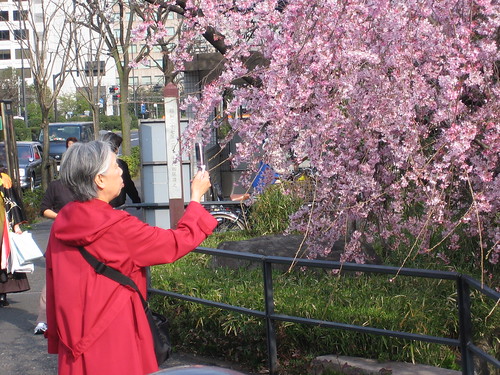Since Japanese courts will not award them compensation, Chinese plaintiffs are now suing the Japanese government in Chinese courts to claim damages for Japanese actions during World War II.
None of the more than 20 cases since the early 1990s had ended in success, Tong Zeng, a campaigner for the cause and chairman of the non-government Chinese Association for Claiming Compensation from Japan, was quoted on Monday as saying.
“The likelihood of us winning the cases in the Japanese courts, influenced by right-wing forces who show no remorse at all, is very small” the Beijing Times quoted Tong as saying.
The Japanese government insists that the issue of war reparations was settled by the 1951 San Francisco Peace Treaty, that formally ended the war, and by later bilateral treaties. It says all wartime compensation issues concerning China were settled by a 1972 joint statement establishing diplomatic ties.
But Chinese courts also had jurisdiction over the claims and could hand down more fair verdicts — by trial in absentia if necessary, Tong was quoted as saying, adding the number of the lawsuits might jump due to the lower cost.
Now, I’m sure a Chinese court can get around Paragraph 5 of the Joint Communique of 1972:
The Government of the People’s Republic of China declares that in the interest of the friendship between the Chinese and the Japanese peoples, it renounces its demand for war reparation from Japan.
‘Cuz, after all, it isn’t the government asking for reparations. But that’s besides the point.
Unfortunately for these plaintiffs, they’re obviously wasting their time, because you can’t effectively sue the Japanese government in China. This badly formatted but still useful summary details how foreign judgments are enforced in Japan. You have to go to Japanese court, and they have to make the following analysis before giving an injunction to enforce the foreign judgment.
Article 118 of the Code of Civil Procedure
A foreign judgment which has become final and conclusive shall have effect only if it satisfies the following conditions:
i. the foreign court has jurisdiction according to laws or treaties;
ii. where the defendant has lost the case, he was notified of the litigation by service of documents (except service by publication) or he had entered appearance before the foreign court;
iii. neither the judgment nor the procedure of the foreign court is contrary to the ordre public of Japan; and
iv. there exists reciprocity.
Japanese courts refuse to enforce foreign judgments on “public policy” grounds all the time. For instance, if a Japanese defendant is ordered to pay punitive damages by a U.S. court, no Japanese court will enforce that part of the verdict, because punitive damages are against “public policy” under Japanese law.
Given that these “right-wing” Japanese courts have already dismissed many claims for reparations, who’s to think that they’ll change their mind just because the case was tried in a different forum?
I’ll grant you that these new lawsuits in China will be a PR field day for the Chinese government. A verdict might come down; Chinese police might try to seize Japanese assets in China, or something crazy like that, and will probably make governments the world over scratch their heads about whether they really want to do business in the Middle Kingdom.
But that’s all they’ll be good for. Aside from having their issue publicized, the plaintiffs are not going to benefit. Meanwhile, watch as Sino-Japanese relations become even more screwed up. I’m glad to be living in Japan, where most people don’t subscribe to this lunacy (they have much more interesting lunacies here).

 “I had marijuana”… Middle School Asst English Teacher Arrested
“I had marijuana”… Middle School Asst English Teacher Arrested You think
You think 



 There is only one thing creepier than corporations marketing to kids: The government marketing to kids. Now, I hear you say, what’s wrong with
There is only one thing creepier than corporations marketing to kids: The government marketing to kids. Now, I hear you say, what’s wrong with  Where it gets eerie is when the cops and the spy agencies start to do it. Yeah, yeah, McGruff the Crime Dog was cute … but this goes way beyond that. Were talking the National Security Agency doing anthropomorphic animals with names like
Where it gets eerie is when the cops and the spy agencies start to do it. Yeah, yeah, McGruff the Crime Dog was cute … but this goes way beyond that. Were talking the National Security Agency doing anthropomorphic animals with names like  Truly troubling – from a marketing standpoint – is the National Reconnaissance Office’s kids page. The
Truly troubling – from a marketing standpoint – is the National Reconnaissance Office’s kids page. The 
 He explains that the keys to his huge success were: a) His years of teaching produced a large contingent of people of voting age who knew him from being his student; and b) Dissenting voters appreciated his promises to bring a more open style of politics to the city. In
He explains that the keys to his huge success were: a) His years of teaching produced a large contingent of people of voting age who knew him from being his student; and b) Dissenting voters appreciated his promises to bring a more open style of politics to the city. In  Bianchi’s political style stands in stark juxtaposition with that of a better-known Western-born activist in Japan,
Bianchi’s political style stands in stark juxtaposition with that of a better-known Western-born activist in Japan,  Just as it starts to warm up, poor Environment Ministress and mother of Cool Biz Yuriko Koike has
Just as it starts to warm up, poor Environment Ministress and mother of Cool Biz Yuriko Koike has